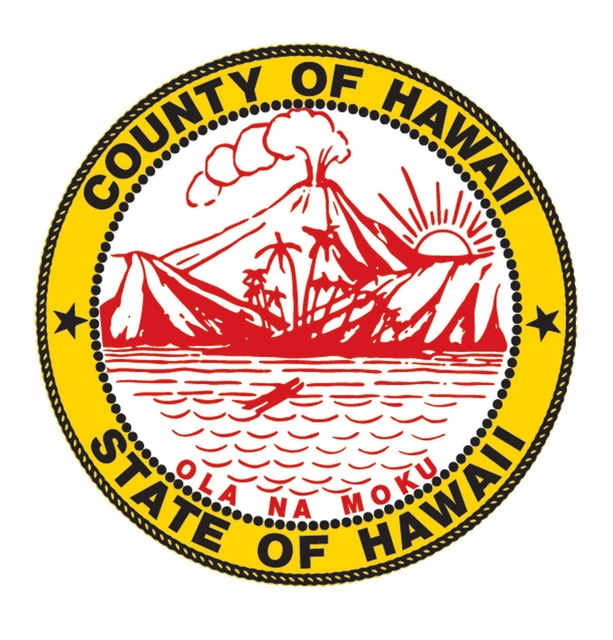Council rejects Ruggles’ discrimination resolution again
Hawaii County Council members on Wednesday rejected for a second and final time a controversial resolution claiming historical discrimination against low-income and Native Hawaiian residents of Puna and Ka‘u.
ADVERTISING
Nearly every council member spoke of the need to help underserved areas, including those two districts, but they objected to language seen as offensive, divisive or inaccurate. The measure was postponed indefinitely in a 7-2 vote.
“I think it’s improper at this point because of its title and substance,” said Councilwoman Maile David, who represents Ka‘u and parts of South Kona.
The resolution, introduced by Puna Councilwoman Jen Ruggles, is based on a civil rights complaint filed nearly two decades ago against the state Department of Transportation in response to a draft long-range transportation plan, which complainants said was underrepresenting populations in Puna and Ka‘u.
In response, the Federal Highways Administration’s Office of Civil Rights concluded the plan was not in compliance with Title VI of the Civil Rights Act or an executive order. FHA recommended the state agency develop a Title VI implementation plan and better track populations based on race, national origin and income levels. Hawaii County also was included in the report.
Council members took issue with the resolution since it claims that means there was discrimination and because it repeats allegations made in the complaint that weren’t reflected in the report’s conclusion. That includes claims that discrimination occurred to benefit Hilo and that Puna’s and Ka‘u’s large subdivisions were intentionally poorly designed and approved to create tax revenue to subsidize other communities.
In a statement, DOT spokeswoman Shelly Kunishige said the agency and county are in full compliance with federal civil rights programs. Corporation Counsel Joe Kamelamela made a similar statement to council members.
Some council members were frustrated that the resolution remained unchanged after a lengthy discussion during a committee meeting when it received a negative recommendation.
“I really don’t want to go down this road again,” said Hilo Councilwoman Sue Lee Loy, who made the motion to postpone. She said the resolution was poorly written. Previously, Lee Loy said the resolution was using Hawaiians as a “springboard.”
“There was an opportunity to correct that and amend that,” she said. “I know myself asked and requested that in that 3.5-hour meeting and here we are two weeks later digging bones again.”
Ruggles again defended the resolution. She said the FHA report is evidence of historical discrimination, which she thinks is responsible for her district having limited infrastructure or services. Several testifiers from Puna supported that view, or at least a perception that it’s been shortchanged, though few brought up impacts of that to Hawaiian residents.
“Don’t kill the messenger,” said a woman, while testifying from Pahoa. “Listen to the underlying perception and complaints of residents. If we deny the existence of the issue there is no opportunity to understand it and resolve it.”
The resolution asks the county to recognize historical discrimination against low-income and Hawaiian residents in those districts and make steps to address it.
In defense of the resolution, Ruggles brought up another form of discrimination.
“Where would we be today if we couldn’t acknowledge the historical inequities and discrimination against women,” Ruggles asked at the meeting, “because it makes some people uncomfortable?”
“… It is a fact that the county policy of you are on your own for Puna roads, water, economic development and medical services is not working.”
Mayor Harry Kim also disagreed with the resolution.
“None of this is because of discrimination,” he said, regarding problems in the districts, after the council vote.
Hilo Councilman Aaron Chung said issues with limited infrastructure or services has nothing to do with discrimination, but with the explosion in population growth in Puna. He also took issue with connecting that to women’s rights.
“It almost amounts to demagoguery when you talk about equating women’s equality to this issue,” Chung said. “Women’s equality, race equality, those are all self-evident truths.”
He also noted the FHA’s conclusion didn’t support all of the allegations that were referenced in the resolution.
“It’s almost like it’s saying we’re against Puna,” Chung said. “We’re trying our best to help. We’re really trying to play catch-up.”
While disagreeing with the resolution, he voted with Ruggles against postponing it indefinitely. The move prevents the council from considering it further, though Ruggles can draft a new resolution that addresses the issue.
Councilwoman Eileen O’Hara, who represents the other Puna district, also noted that the resolution repeats many of the allegations made in the civil rights complaint that weren’t included in the agency’s conclusions. She said discrimination is not referenced in the conclusion.
In a separate “findings” section, the FHA report says the long range transportation plan “discriminates by failing to recognize actual land uses and populations affecting low income and Native Hawaiians,” though it didn’t say it was intentional.
O’Hara agreed that Puna needs help with infrastructure and services as it continues to grow. She said many of the problems have to do with the way its large subdivisions were planned — with private roads and no public water or sewer lines — more than 50 years ago.
“We all recognize that it was wrong,” O’Hara said. “It was wrong when it was done, and it’s still wrong.”
She added the way to address it is to continue to push for funding. O’Hara also offered to work with Ruggles on a new resolution, though was disappointed no changes were made by the meeting.
“That’s a little disappointing to me because I agree with many of the comments made by council members,” she said. “It tends to have language that has divisiveness. We don’t want to be divided.”
Email Tom Callis at tcallis@hawaiitribune-herald.com.




